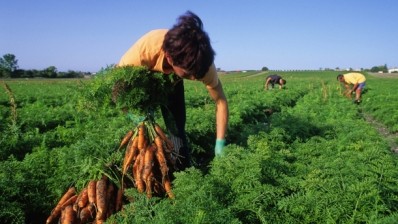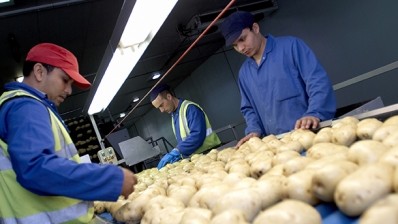Food manufacturers face huge labour crisis

The weak pound, record employment levels, and hostility towards migrants following the UK’s decision to leave the EU, had all contributed to the biggest labour crisis since 2004, David Camp, chief executive of the Association of Labour Providers (ALP), said.
Speaking at the Food and Drink Federation’s ‘Exiting the EU’ conference, held in London last month, Camp explained that ALP members were reporting a 30–70% reduction in responses to job advertisements compared with 12 months ago.
“The reduction in the value of the pound means the exchange value of migrants’ pay back into their home currencies is typically worth 15% less than before the Brexit vote – completely wiping out any benefits incurred by the National Living Wage,” Camp explained.
‘Wiping out any benefits’
“Nationwide employment levels also mean there is a huge availability of vacancies for jobs that are often easier, and better paying than they are in the food industry.
“Furthermore, some of our members have reported cases of race-hate and anti-migrant sentiment to us, which has only deterred overseas workers further,” he added.
Camp’s view was supported at the conference by David Lloyd, director of the Food Industry Centre at Cardiff Metropolitan University.
Lloyd said the that the falling pound had meant there had been a “movement away” of migrants in certain parts of Wales far earlier than had been expected.
‘Started to lose people’
He said: “The margin on the money being sent back by migrant workers to families has eroded. Just in the past couple of weeks, several companies have reported to us that they were starting to lose people – so it certainly is a problem.”
Meanwhile, Vince West, head of business resilience practice at insurer AON, told delegates that the food industry’s ability to retain and attract talent had consistently been one of the top three risks in his company’s biennial Global Risk Management Survey.
“Given what we’ve heard today, that’s only likely to be exacerbated,” he suggested. “We encourage organisations to characterise how any reduction in the movement of labour will impact their key performance indicators. Those are the things that shareholders are looking for reassurance on.”
Camp echoed a recent call by the National Farmers Union for the government to trial a fixed-term seasonal workers’ scheme for non-EU nationals in 2017. Leading food manufacturers, including 2 Sisters Food Group, have also urged the government to safeguard the industry’s access to migrant labour.
Meanwhile, both the Food and Drink Federation and the British Retail Consortium, alongside other firms and organisations, have warned food prices will rise after Brexit, if the sector is denied access to EU workers.



















